#4 - Lesvos Part 2 - Shades of Black
- Dallas Thornton
- Jul 13, 2016
- 4 min read

A mountain of life-jackets deserted by refugees on Lesvos. Photo by volunteer David Heeley
From matters of sin to international relations, when you need something done right on Lesvos, you call the priest. So when I realized that the bus had driven out of town with my guitar, I was given a unanimous bit of advice. "Ask father."
When I met him, I was struck by his powerful presence. Dressed head to toe in black, he stood to introduce himself. "Father Christoforos," he spoke, gravely. The depth and intensity of his gaze made it impossible to be anything but alert to the present moment. I chose my words carefully, keeping anything with four letters on a short leash. But that was before I knew the priest.
The next time that we saw him was at the Proactiva training (from the last entry). He had disrobed to take the cold plunge himself and sat by his motorcycle coolly smoking a cigarette, tattoos across his arms and chest. He cracked a casual joke, the punchline augmented by an F-bomb. This was no ordinary priest. He would turn out to be a fellow songwriter and guitarist (among other instruments), a multiliguist, a scholar and one of the most insightful people I've had the pleasure of meeting.
In our interview he redefines the idea of worship - a concept that has been dangerously misinterpreted over time - in a way that transcends belief systems and could benefit anybody. We discuss what love is and the role that it plays in ones relationship with happiness and self. And, of course, we talk about the work being done here on Lesvos. It will be interesting to see how people now opposed to the idea will receive Christoforos' compelling take on the importance of receiving asylum seekers worldwide warmly and without judgment.
History tells us everything that we need to know. When we integrate a new culture into our own, we strengthen our culture, the arts, history and our psychological fortitude. On the other hand, refusing to accept people from other cultures who wish to integrate with our own, we breed a mentality of separation, hatred and "othering." While change may seem frightening in the beginning, it is important to recognize that much of the world's disagreement comes from the angry uprising of people who have been treated as "the other." In the pursuit of long term quality of life on the individual level, perhaps a more macro question is relevant: which cycle do we want to propagate and how do we act accordingly?
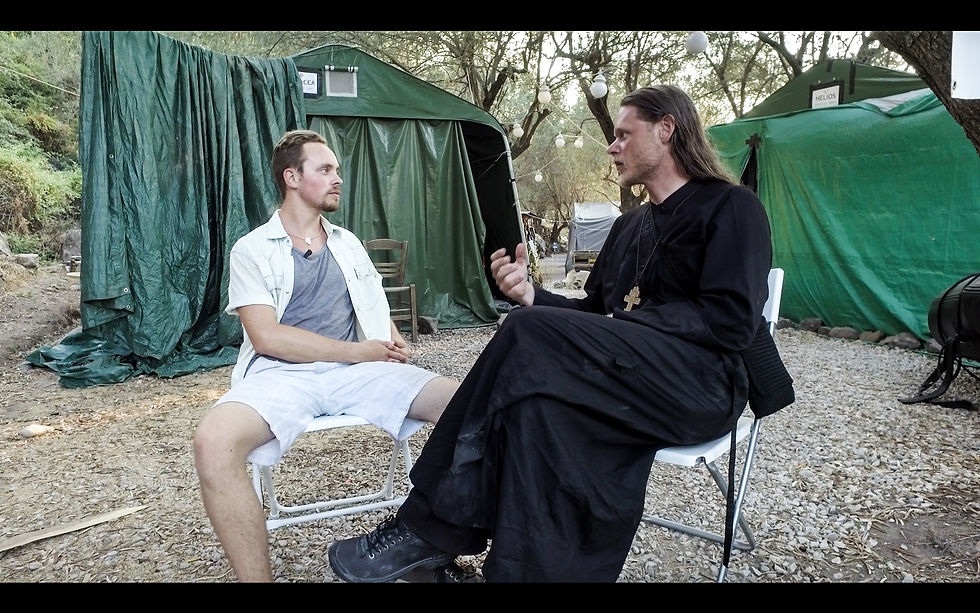
The devotion to human rights over issues of politics or race is a common thread that bonds the volunteers at Lighthouse. The volunteers come from all over the world, from all different backgrounds, but find common ground in this devotion. Perhaps it is for this reason that Lighthouse seems to attract only the most colorful characters.
Our dear friend Omar, for example, who made the journey himself from Syria through Turkey, through Greece all the way to Germany, only to come back to Lesvos to help others seeking the same freedom. Incredible considering that the average number of attempts before successfully making the journey for refugees is seven. What makes Omar's story all the more compelling is that he didn't take a boat - he swam from Turkey to Greece. One of his two friends that he swam with couldn't swim, so Omar and the other strong swimmer put the third friend on a float, tied the float to a leash and the two of them pulled the third friend across the sea. They swam for 14 hours before reaching the other side. The giant of a man embraces everyone in a bath of love and laughter that makes a bad mood impossible in his presence. We can't wait to share Omar's interview.
As an Egyptian (and also a Russian citizen, fluent in Italian and English), Karim found a unique position as translator. For the time that we were with Lighthouse, he was the only person who could communicate in Arabic and English. And so the group had never been better able to communicate with Omar. Karim and Omar teamed up to create signs for guiding Arabic-speaking wayfarers around the island, lists of useful translations for the camp, and were able to communicate with the arabic-speaking boys at one of the camps nearby for unaccompanied minors, which was a breath of fresh air for the kids.
-----------------------------------------
It was the morning of July 1st, and the shores were not flooded with boats. In fact, there were no boats. Not one. Skala was quiet. The EU and Turkey had postponed the visa-free travel decision until October. Life at Lighthouse hummed along, cutting up and carrying off wrecked boats and life-vests from the beaches to up-cycle the materials in useful ways, ready for a radio call at any moment.
After a week without word of my guitar or computer, I had accepted a good lesson in letting go. The old, "it's just stuff." But one night Father Christoforos came rolling into town on his motorcycle with my guitar case strapped to his back. Giddy to see my old friend Martinito again, I kissed the little black guitar on the forehead. Where had it been for a week? It had been on the bus, above my seat, right where I had left it. The bus had made its rounds around the island for a week, passengers getting on and getting off, and and nobody had touched it.
That's the beauty of Lesvos. In Athens, you get your pockets picked if your jeans aren't tight enough, but here you walk off without your bag and the priest brings it to you a week later on his motorcycle.
---------------------------------------------------------------------------------------------
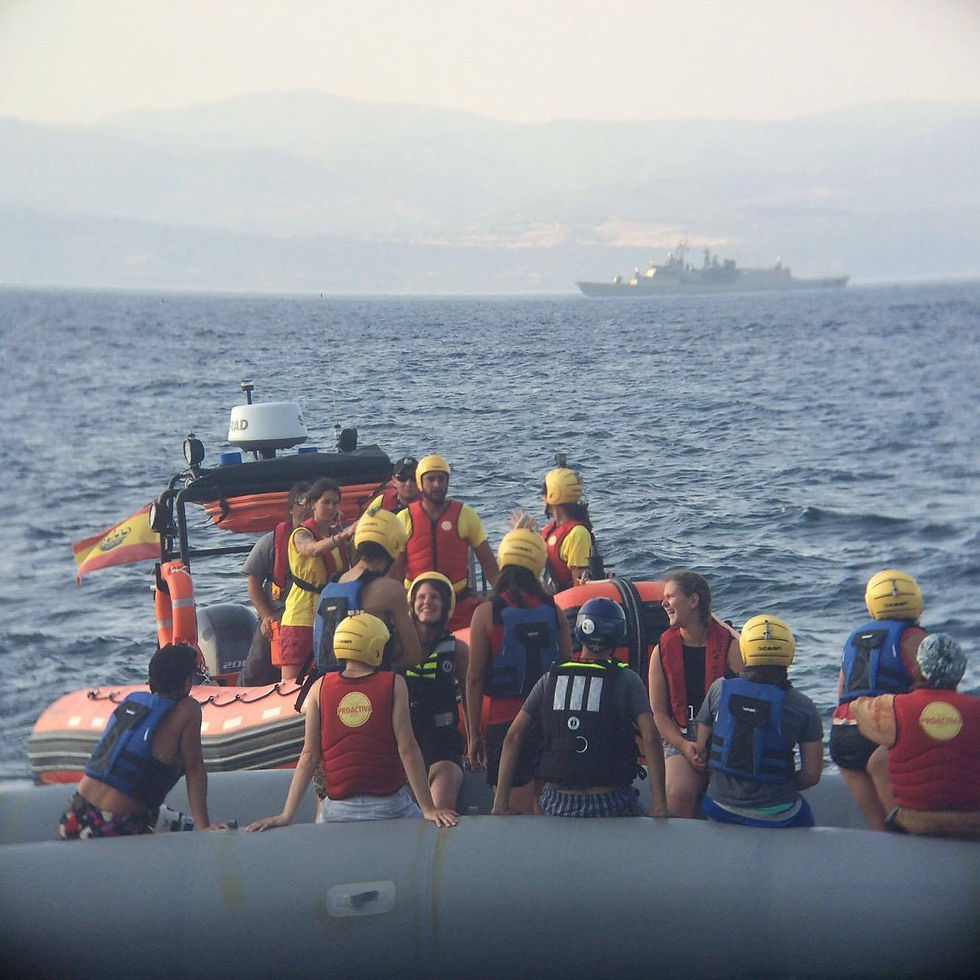
Proactiva Training with the team from "#1 Into The Cold Blue," featuring NATO

Pre-assfreezing on said day
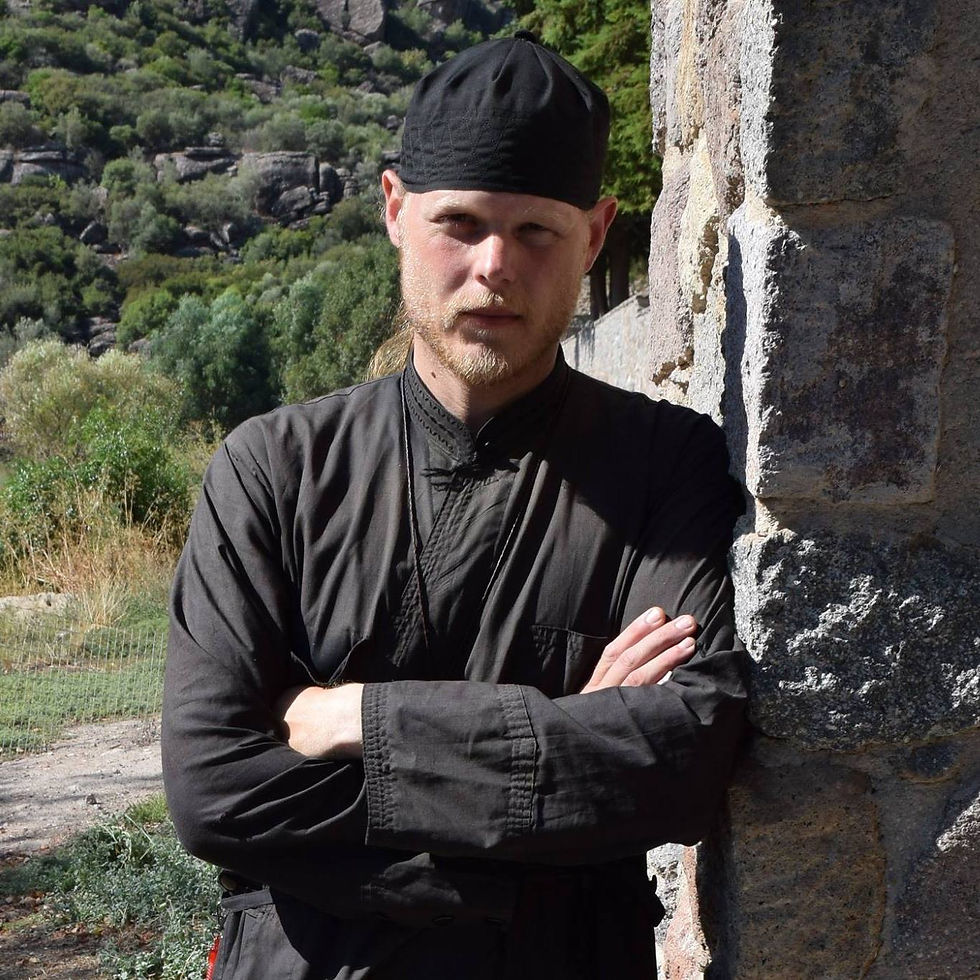
The Man, The Legend, The Father
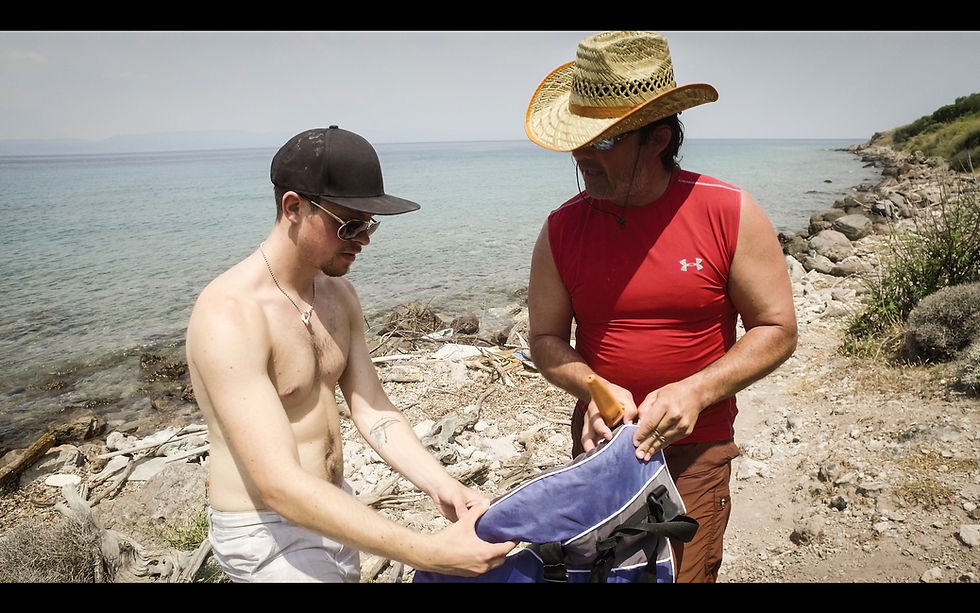
Cutting open false life-jackets on the beach with Tony and the gang

Karim Looks out from a Café in Sykamnias
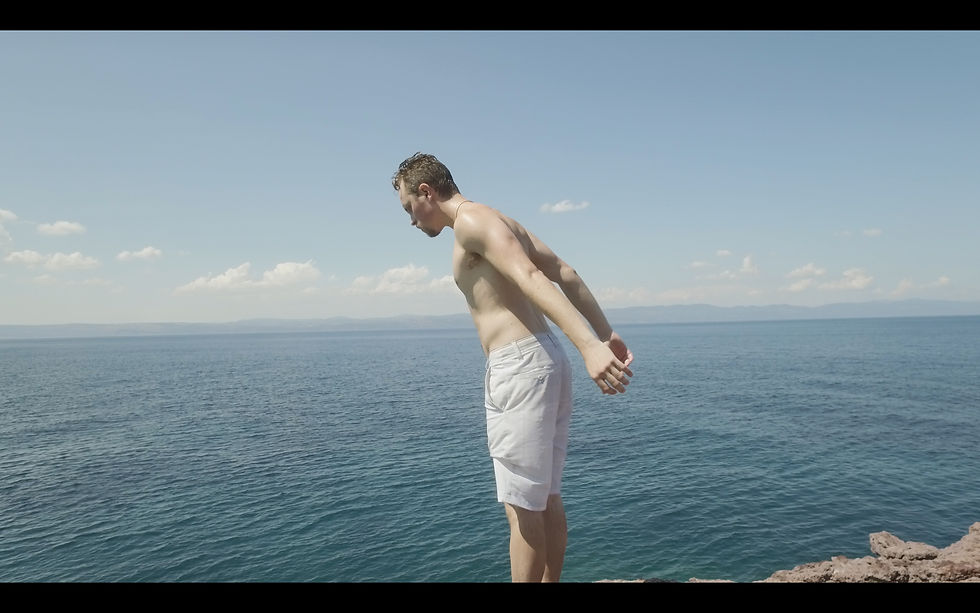
Ready
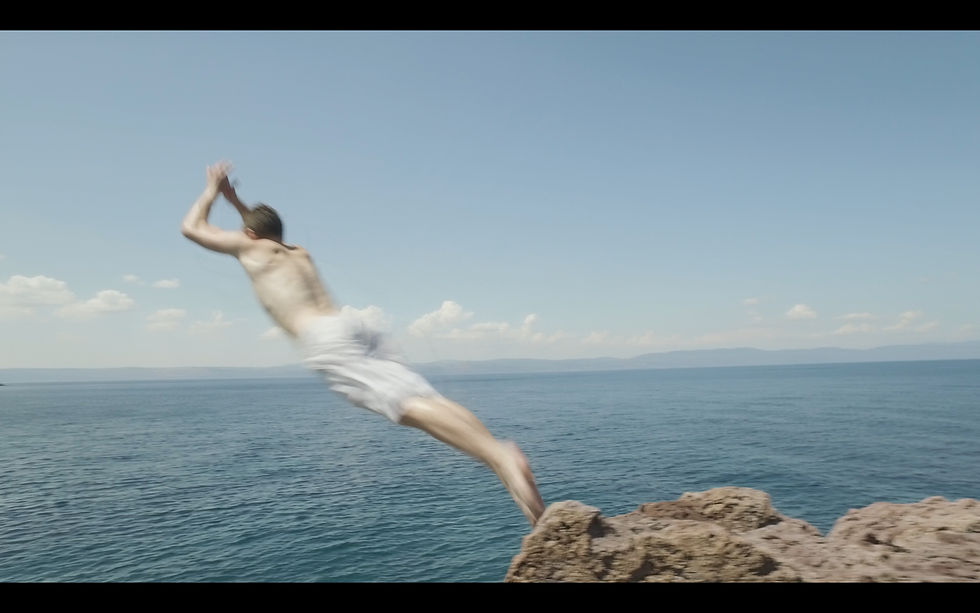
Set
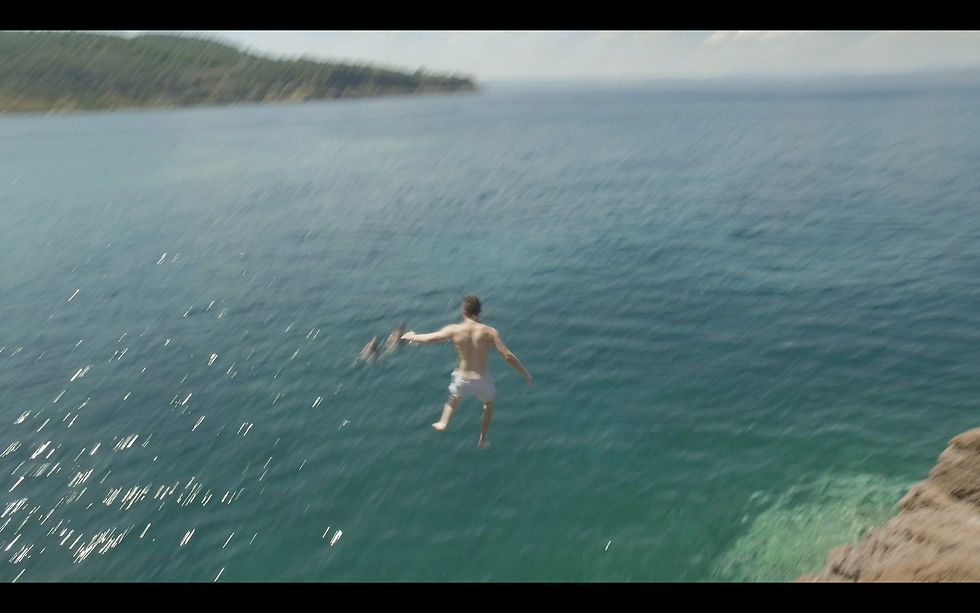
Go
Curious to hear Father Christoforos' music? Begin Here:






























Comments